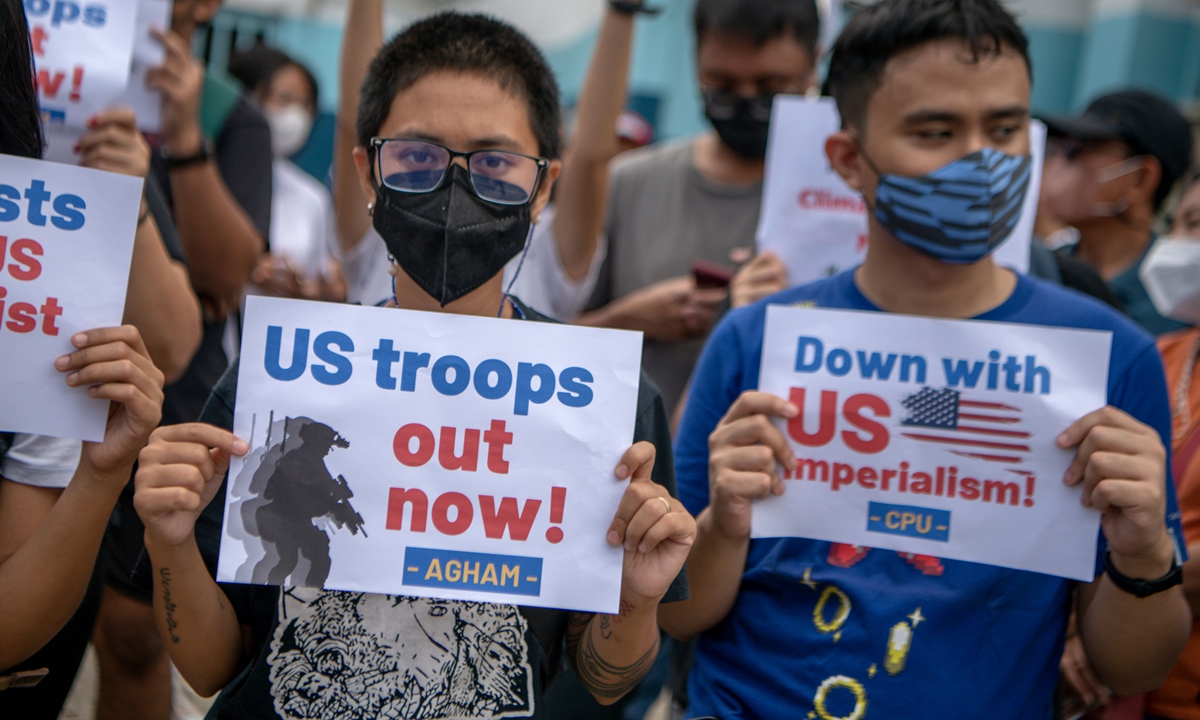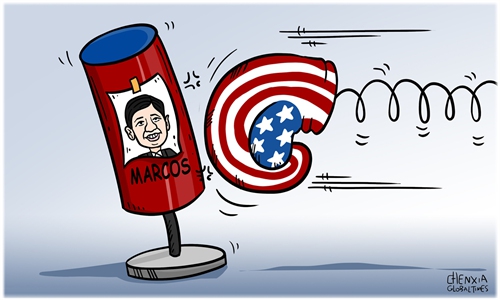Independence or becoming an appendage: the Philippines’ foreign policy at crossroads

Photo: CFP
As a politician that acts on his own way, former Philippine president Rodrigo Duterte has his insight on regional affairs and China-Philippines relations, enabling him to turn China-Philippines relations for the better and dare to say "no" to the US during his tenure.
In an interview on April 24, he said, "The problem of China is China alone. The internal problems will be solved by the Chinese government, the interference and interventions of other countries are not welcome as it will only contribute to a more dangerous path for everybody." He also said, "We recognize the Chinese people that become an important partner in our efforts to ensure the peace and prosperity of the region for months that we share in culture and history remain enduring, as we face the uncertainty we face today."
The Philippines became independent in 1946, but it was still strongly influenced by the US in domestic and foreign affairs. It is common for politicians like Duterte to pursue an independent foreign policy. Walking through the streets of Manila, you will find that many streets are named after Filipino nationalist politicians, such as Jose P. Laurel, Apolinario Mabini and Claro M. Recto. They have repeatedly challenged the authority of the US in the Philippines under the banner of nationalism.
Due to the history of the special relationship between the Philippines and the US, pro-US has become a deep-rooted tradition and a natural existence in the Philippines. From ordinary people to national leaders, they all regard the US as a unique relative of the Philippines. But since the 1950s, Filipino nationalism and the pursuit of an independent foreign policy have continued to grow and develop.
After World War II, in order to build an anti-communist alliance, the US signed a series of treaties with many countries in Southeast Asia and South Asia, and the Philippines became an important part of the US anti-communist island chain. Therefore, the US urgently needed to expand its bases in the Philippines. For this reason, the Philippines and the US had conducted repeated negotiations on issues such as the jurisdiction and lease period of the bases. Although the negotiations did not produce a formal result, the Philippines still achieved a staged victory regarding the US military bases in the Philippines under pressure from Filipino nationalist politicians such as Recto and Laurel.
For example, the US recognized the right of the Philippines to negotiate on the use of US bases in the Philippines when the US may get involved in Asian affairs, shortening the base lease from 99 years to 25 years. On September 16, 1991, the Philippine Senate voted 12:11 to reject a new treaty for the Subic Bay Naval Station and to end an American military presence in the country that has lasted nearly a century.
Similarly, Duterte's shift in China policy during his tenure was also a brave attempt by the Philippines to pursue an independent foreign policy. During that period, the political relations between China and the Philippines were stable, and the economic and trade relations developed rapidly. Hasn't the national interests of the Philippines been safeguarded because of it?
However, in the past few months, the Philippines and the US have had frequent military and security interactions, and the Philippines' foreign policy has shown an overly pro-American trend, even at the risk of interfering in China's core interests, such as the Taiwan question. For a small country like the Philippines, being drawn into a potential conflict between major powers is hardly a blessing. If this trend continues, China-Philippines relations may experience setbacks or even reversals, and the achievements of China-Philippines relations during Duterte's administration may also be ruined. The above-mentioned attitude of Duterte undoubtedly reflects the concerns of some Philippine politicians about the prospects of China-Philippines relations. After all, a rational and independent foreign policy is in the best interest of the Philippines.
On Sunday, President Ferdinand Marcos Jr. of the Philippines started his trip to the US. Whether the Philippines will return to a balanced diplomatic line or further lean toward the US, and the direction of the relationship between the Philippines and China deserves our attention. The choice the Philippines will make is not only related to its own national interests, but also to regional peace and stability.
The author is professor and vice dean of the School of International Studies, Director of the Center for Philippine Studies, Jinan University, Guangdong, China. opinion@globaltimes.com.cn

